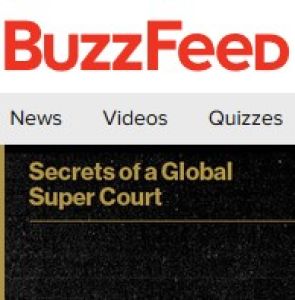Join getAbstract to access the summary!

Join getAbstract to access the summary!
Chris Hamby
Secrets of a Global Super Court
Buzzfeed, 2016
What's inside?
Corporations use a secretive, “global super court” system to bend governments to their will.
Recommendation
A parallel global legal system largely hidden from public view and run by a corporate elite is undermining democracy around the world. Pulitzer Prize–winning journalist Chris Hamby’s 18-month investigation results in an exposé that reads like a thriller novel. Hamby traveled across three continents to uncover the mechanisms of an obscure provision buried in the world’s vast network of trade and investment treaties, which allow foreign businesses to sue sovereign governments. A cabal of corporate lawyers – acting as arbitrators – dispenses binding, often onerous rulings that can gut government regulations designed to protect the public. This four-part investigative article for Buzzfeed offers a deep dive into one of the core contemporary controversies surrounding free trade agreements and their relationships to economic justice. While always politically neutral, getAbstract recommends this series to scholars, activists, watchdogs and policy makers interested in the intersection of free trade and social, political and economic justice.
Summary
About the Author
Chris Hamby is a reporter for BuzzFeed News and a Pulitzer Prize-winner for Investigative Reporting.

















Comment on this summary